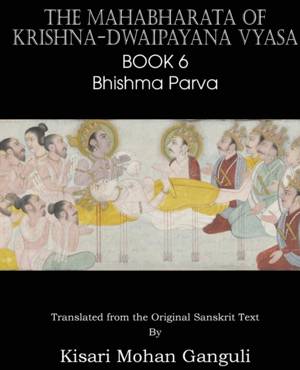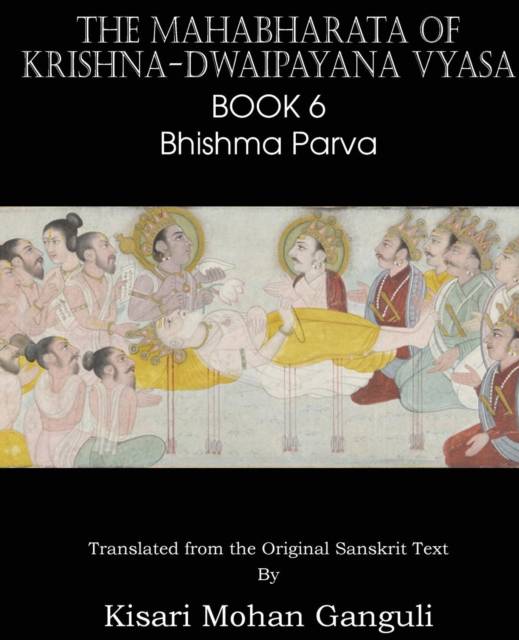
Je cadeautjes zeker op tijd in huis hebben voor de feestdagen? Kom langs in onze winkels en vind het perfecte geschenk!
- Afhalen na 1 uur in een winkel met voorraad
- Gratis thuislevering in België vanaf € 30
- Ruim aanbod met 7 miljoen producten
Je cadeautjes zeker op tijd in huis hebben voor de feestdagen? Kom langs in onze winkels en vind het perfecte geschenk!
- Afhalen na 1 uur in een winkel met voorraad
- Gratis thuislevering in België vanaf € 30
- Ruim aanbod met 7 miljoen producten
Zoeken
The Mahabharata of Krishna-Dwaipayana Vyasa Book 6 Bhishma Parva
Krishna-Dwaipayana Vyasa
Paperback | Engels
€ 30,95
+ 61 punten
Omschrijving
The Mahabharata is one of the two major Sanskrit epics of ancient India. It is an epic narrative of the Kurukshetra War and the fates of the Kauravas and the Pandava princes as well as containing philosophical and devotional material, such as a discussion of the four goals of life. Here we have Bhishma Parva, the sixth, featuring first part of the great battle of the Kurukshetra War with Bhishma as commander for the Kauravas. Vyasa is a revered figure in Hindu traditions. He is a kala-Avatar or part-incarnation of God Vishnu. Vyasa is sometimes conflated by some Vaishnavas with Badarayana, the compiler of the Vedanta Sutras and considered to be one of the seven Chiranjivins. He is also the fourth member of the Rishi Parampara of the Advaita Guru Paramparā of which Adi Shankara is the chief proponent.
Specificaties
Betrokkenen
- Auteur(s):
- Vertaler(s):
- Uitgeverij:
Inhoud
- Aantal bladzijden:
- 276
- Taal:
- Engels
Eigenschappen
- Productcode (EAN):
- 9781483700588
- Verschijningsdatum:
- 1/03/2013
- Uitvoering:
- Paperback
- Formaat:
- Trade paperback (VS)
- Afmetingen:
- 190 mm x 235 mm
- Gewicht:
- 480 g

Alleen bij Standaard Boekhandel
+ 61 punten op je klantenkaart van Standaard Boekhandel
Beoordelingen
We publiceren alleen reviews die voldoen aan de voorwaarden voor reviews. Bekijk onze voorwaarden voor reviews.









